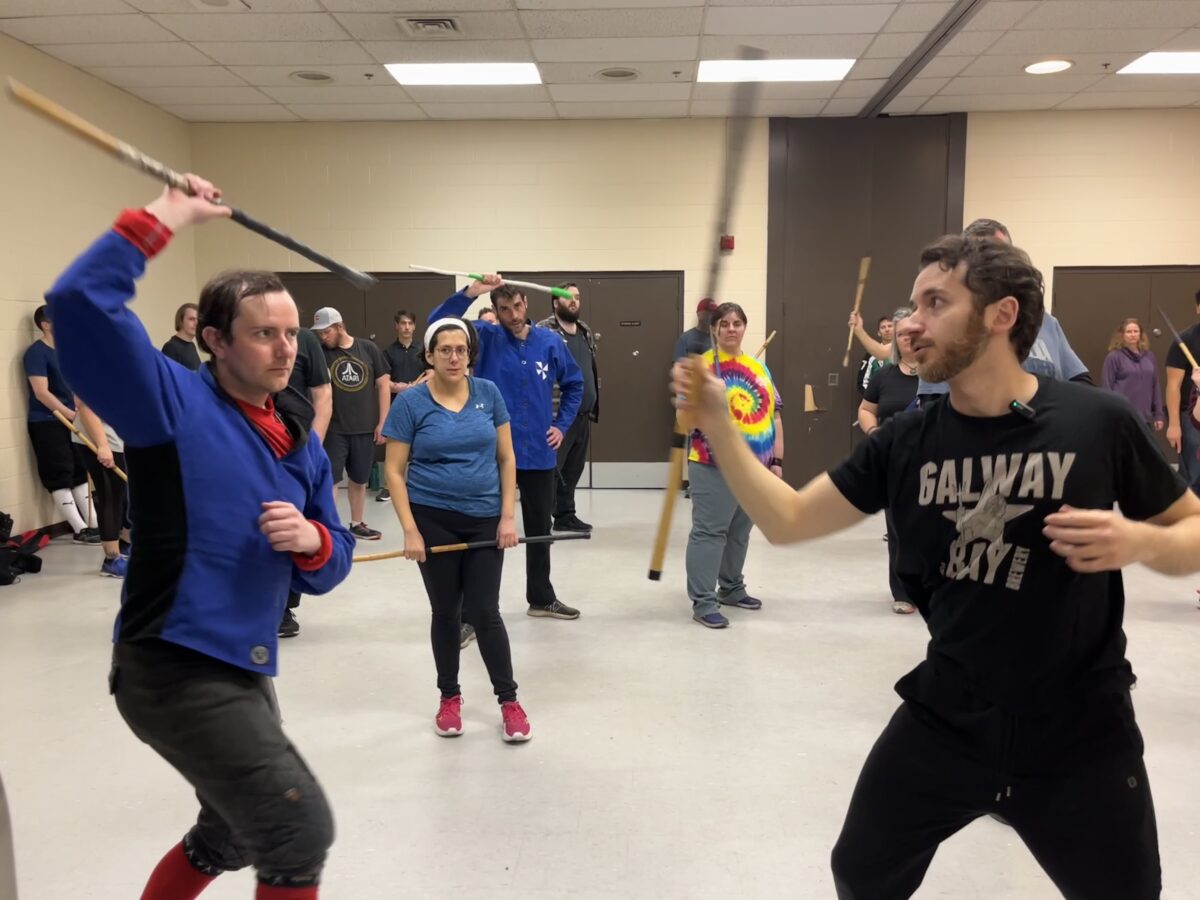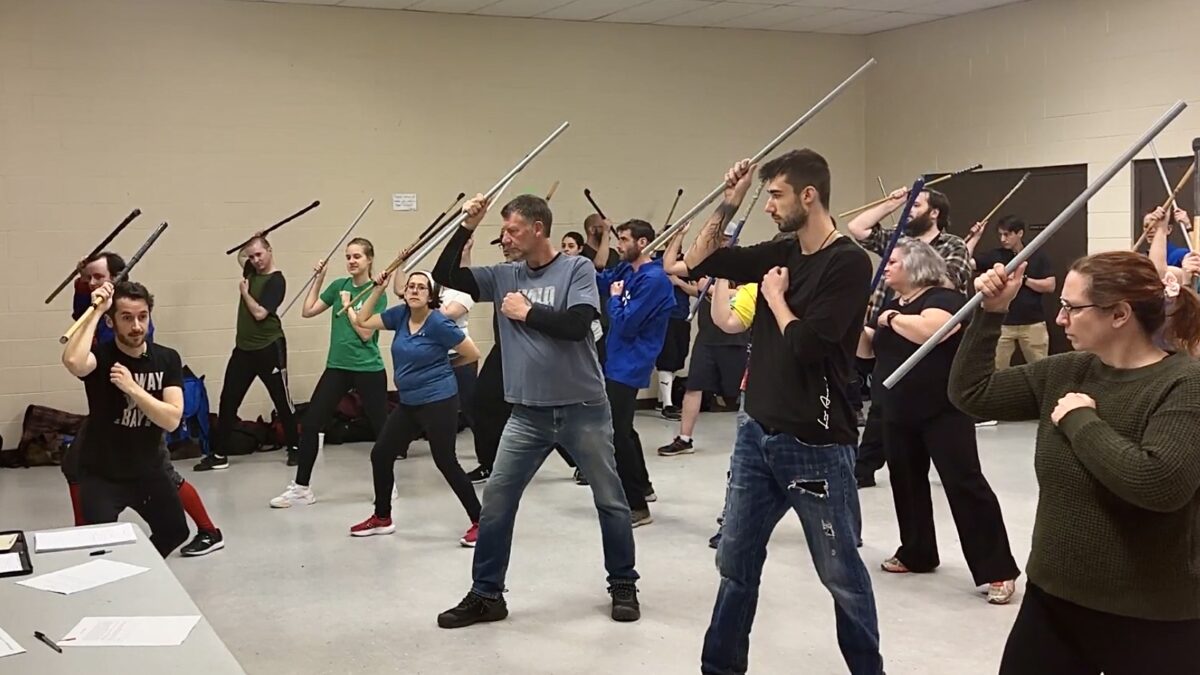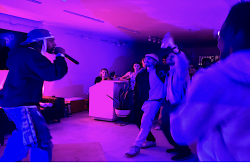Maxime Chouinard is on a bit of a mission.
The well-travelled veteran martial arts instructor is doing all he can to revive interest in a centuries-old Irish martial art. To that end, he recently hosted an event which had the Jack Purcell Community Centre echoing with the sound of wooden sticks and plastic poles clashing together.
The free Irish Stick Fighting workshop was held by the Bataireacht and Historical Fencing Faction for interested locals as a part of this year’s St. Patrick’s Day festivities.
“I’ve been teaching this in a non-profit way for so many years. I think one thing that we’ve been trying to do is to go beyond the stereotypes because Irish culture is rife with the ‘fighting Irish’ image and a lot of people don’t really appreciate that,” said Chouinard. “So, we’re trying to go beyond that and really promote what we’re doing as a martial art as a way of personal growth.”

Chouinard learned Bataireacht, in 2007 when he visited Northern Ireland and took lessons from one of the few who knew the old fighting technique.
Two years later, Chouinard began teaching the traditional martial art and now has clubs in “seven different countries.”
Chouinard’s “aim” for the workshop was “really to share this art, this knowledge and to have so many people interested in participating – it’s really awesome,” he said. Chouinard was pleased that more than 30 people showed up to learn Bataireacht.
Some participants said they were at the workshop to support Chouinard’s dream of bringing back a forgotten martial art.
Andrew Fleming has significant Irish roots and has been taking classes from Chouinard at Bataireacht and Historical Fencing Faction in the Bronson Centre for four years. During the pandemic, he took online classes and has fallen in love with the martial art.
It’s not only been a way for me to connect with my Irish heritage, but a way to connect with other people within the community.
Andrew Fleming, participant, Irish stick fighting workshop
“It’s not only been a way for me to connect with my Irish heritage, but a way to connect with other people within the community,” Fleming said. “It’s been a really delightful group of people to get involved with and it’s nice to have the opportunity to share that with the broader community.”
While many participants joined the workshop because of the holiday, to learn Bataireacht or just out of pure curiosity, others said they understand the significance of diverse fighting styles.

“Martial arts is a very big part of a culture’s heritage,” said Ben Pogue, one of the participants. He has been long-sword fencing for six years. The combination of knowing one of the workshop’s instructors and having Irish ancestors enticed him to join the workshop. “It’s kind of fighting and food are almost the two universal human things. So, I think it is a good way of looking at a culture.”
Through study and time spent in Ireland, Chouinard says he has developed a deep understanding of Bataireacht’s history and a sense of the effect it has had on Irish culture. He has a BA in Archaeology from Laval University, a Master in Cultural Heritage from Deakin University and is a Historical Weapons Supervisor with Parks Canada.
Chouinard says it is unclear when Bataireacht originated, but there are traces of it in the 16th century. It became popular in the 18th century when British occupiers banned the Irish from carrying weapons. They then began to carry wooden walking sticks to use for protection if needed.
Chouinard said the walking stick is called a shillelagh in Irish. He explained the sticks are traditionally made from expensive blackthorn hardwood. In the knob, people would sometimes insert some lead to give a more “damaging blow.”
However, Bataireacht was not just used against the British, Chouinard said. He said people would often settle feuds by battling it out with their shillelaghs. Sometimes, he added, their wives would even throw stones at their husband’s opponents to help.
Chouinard said the martial art nearly disappeared in the 20th century.
Chouinard and his supporters hope that by teaching the rich history, Irish fighting techniques and bringing people with diverse backgrounds together, Bataireacht will be make a comeback.
“I don’t think it’s been quite a tradition for a long time now and I hope many years after this, maybe it’ll become more of a tradition or more associated with Saint Patrick’s Day,” said Chouinard.
Chouinard and Fleming encourage everyone to get involved with Bataireacht to bring back the respected martial art in honour of the Irish culture and their beloved holiday.




